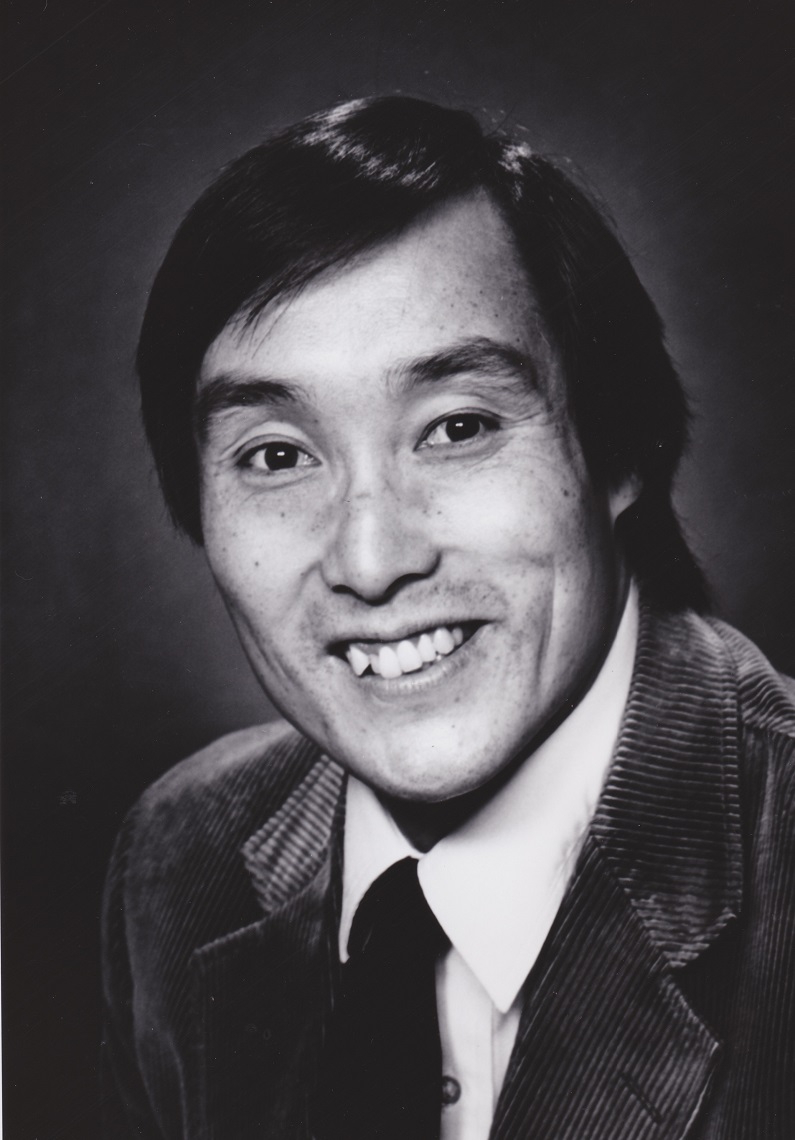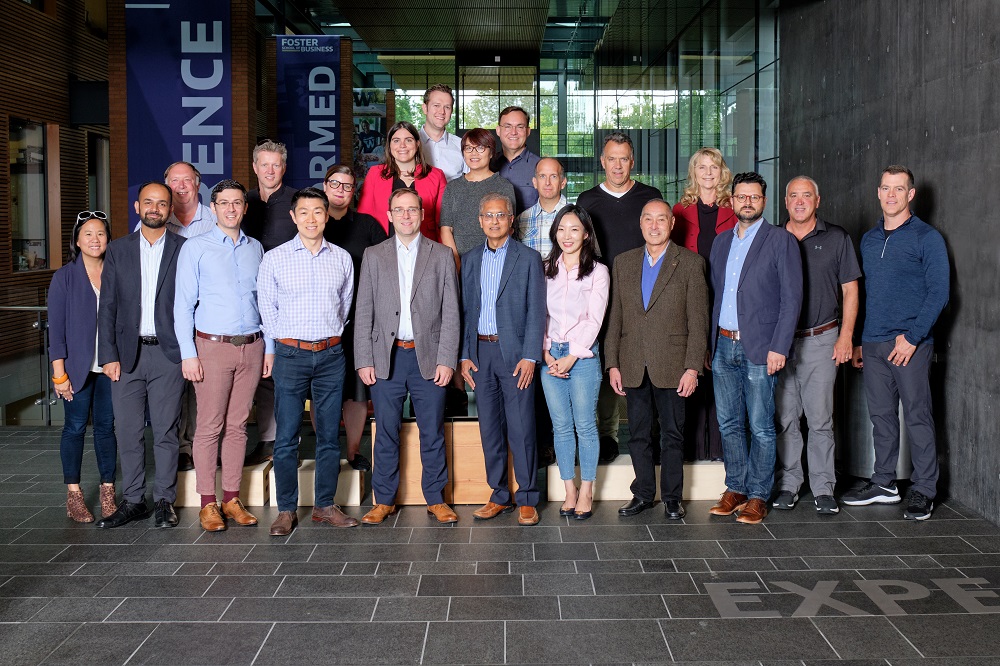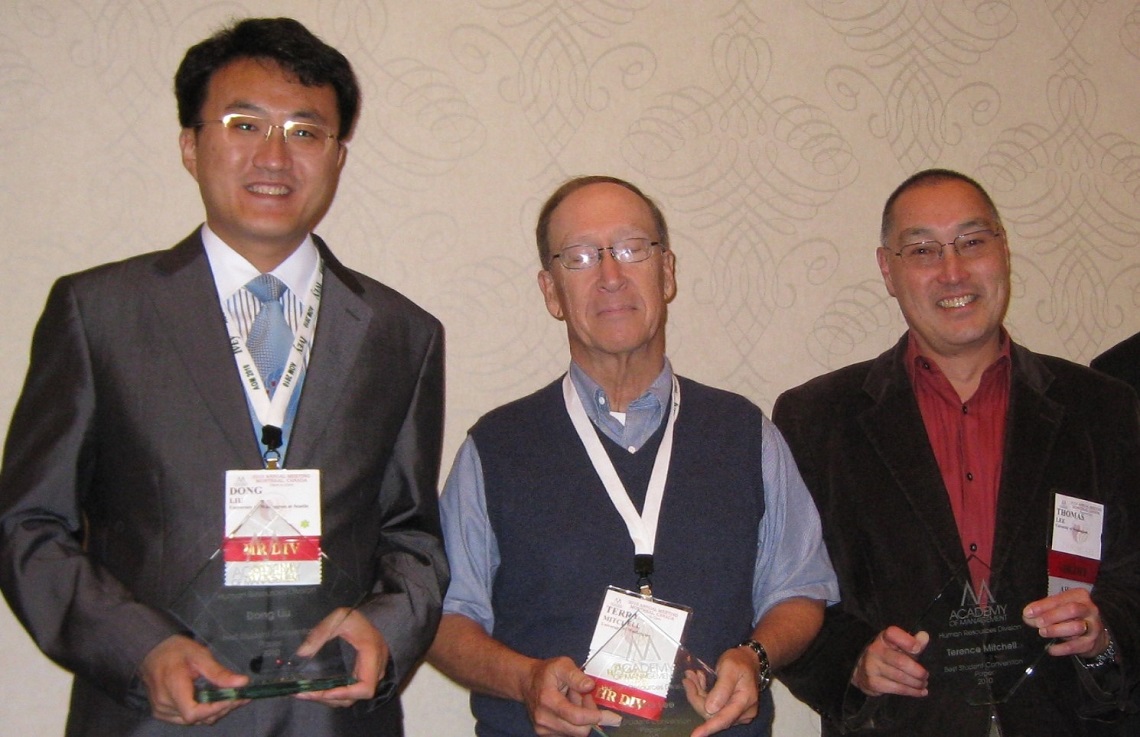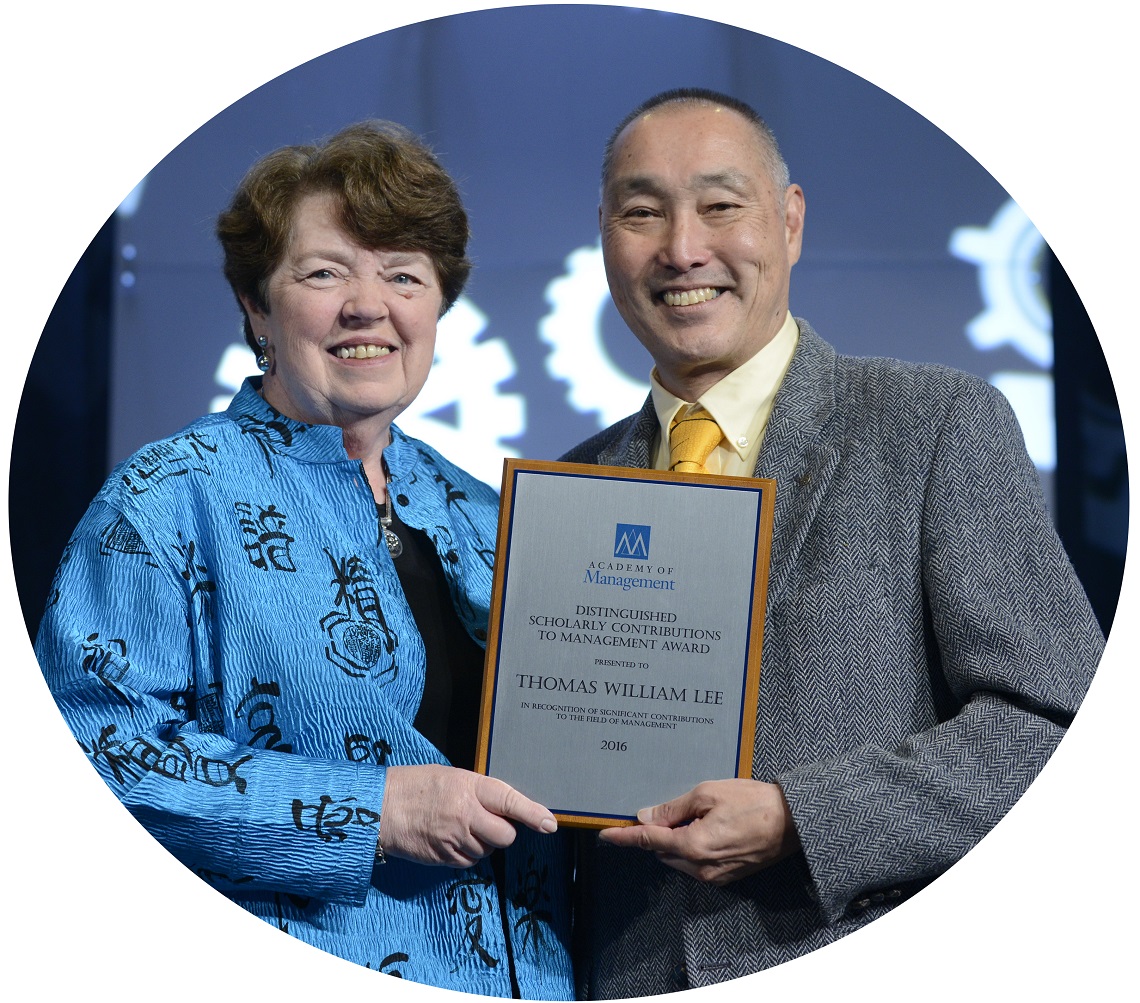Academic Exemplar
Tom Lee was a masterful teacher, impactful scholar, generous mentor and steadfast leader
Tom Lee was an academic’s academic.
Lee, the Hughes M. Blake Professor of Management at the University of Washington Foster School of Business, passed away Friday, June 18, at the age of 68.
The most unassuming of towering figures, Lee was—humbly, expertly, affably—a scholar and leader of enormous impact at Foster and within the larger discipline of management.
His voluminous curriculum vitae is laden with accomplishments and service. Author of nearly 100 peer-reviewed papers. Frequent research award-winner. Co-creator of landmark theories on why employees choose to leave or remain in their jobs. Highly rated teacher at every level. Generous mentor to PhD students. Associate dean for academic and faculty affairs. Editor of the Academy of Management Journal. President of the Academy of Management. Fellow of the Academy of Management and the Society for Industrial and Organizational Psychology. Multiple lifetime achievement awards.
“It is generally difficult to summarize a career,” says Lee’s longtime colleague, collaborator and close friend Terry Mitchell, a professor emeritus of management at Foster. “There are so many dimensions on which one could focus. But for Tom, it is straightforward: he was simply exceptional on every dimension.”
First generation
Thomas William Lee was born in 1953, the son of Chinese immigrants. His father had come to the United States as a houseboy for a Chinese family in the early 1930s, and his mother arrived soon after World War II. “My parents and their generation wanted to create the most stable and boring environment for their children,” he told Sarah Kovoor-Misra in an interview for a 2012 paper in the Journal of Management Inquiry.

That “stable and boring” childhood enabled Lee to excel at school. He earned a BA in psychology from the University of California at Berkeley in 1975 and an MA in industrial psychology from Bowling Green State University in 1977.
His career began in industry—with a human resources job at the Southern California Edison Company—but quickly detoured to academia. “I happened to work on two projects (at SCE): a study on attitudes towards nuclear power and validation of employee selection tests,” he told Kovoor-Misra, shifting perceptibly to a professorial tenor. “These two projects made it quite salient that I should be an academic.”
Lee earned his PhD in management from the University of Oregon in 1984.
Family reaction was, well, mixed.
“My father was a grocery clerk and thought my academic career was the most wonderful thing in the world,” Lee recalled. “When my mother heard that professors don’t get paid that much, she thought that I was nuts!”
Prolific scholar
Nuts or not, Lee joined the Foster School’s Department of Management and Organization in 1983 and quickly made his mark.
He taught every level of student, from undergraduate to MBA to PhD, earning impeccably high marks. And, over the years, he mentored scores of doctoral students to their own successful academic careers, frequently collaborating throughout.

But it was his research that really distinguished Lee from the crowd. Both in quantity and quality, his publication record is superlative by any measure. He authored an important book on qualitative research methods and 95 papers published in peer-reviewed journals, receiving 24,000+ Google Scholar citations and registering an “h-index” of 51 (meaning 51 of his publications have received at least 50 citations, indicative of significant influence).
Lee’s research interests examined a broad swath of human resources (HR) and organizational behavior (OB), on topics as diverse as goal-setting, decision-making, employee voice, situational interviews, recruiting, selection and attendance.
But his contributions to two important areas made an outsized impact both on the academic literature and the profession of management.
Demystifying turnover
Lee entered the HR field just after seminal studies had first articulated the major predictors of employee turnover and the steps to quitting. “After some years testing these theories, like everyone else in the field,” he said in a 2018 interview, “I decided it was time to take some risks.”
He began a long partnership with Mitchell. And in the mid-1990s, the duo introduced the “Unfolding Model of Turnover.” This theory demonstrated that, in many cases, it takes an external event or shock to prompt workers to quit their job, above and beyond the personality and attitudinal factors that had been studied ad nauseam.
It is generally difficult to summarize a career. There are so many dimensions on which one could focus. But for Tom, it is straightforward: he was simply exceptional on every dimension.”
In the 2000s, Lee and Mitchell began looking at the other side of the turnover equation: why people stay in their jobs. Most thought that satisfaction was the most important factor. But they identified several other factors—links, fit and sacrifice—that made leaving just a little bit harder. This became the “Job Embeddedness” model.
They went on to develop Psychological Withdrawal Theory, which improves the prediction of turnover substantially by considering reluctant leavers and stayers differently from enthusiastic leavers and stayers that had traditionally been studied.
And recently, Lee and Mitchell were working to identify turnover indicators over time. “By looking at the trajectories of job satisfaction, engagement, and embeddedness over time rather than in a single moment,” Lee explained, “we find that the predictive quality of surveys skyrockets.”
Research in action
Lee’s enormous body of relevant research garnered a long list of accolades.
Among them, “The unfolding model of voluntary turnover and job embeddedness: foundations for a comprehensive theory of attachment” (with Mitchell), won the 2001 Outstanding Organizational Behavior Publication Award from the OB Division of the Academy of Management. “Increasing human and social capital by applying job embeddedness theory” (with Mitchell and former student Brooks Holtom), was named the Outstanding Practitioner Oriented Publication in Organizational Behavior in 2007. And “When Employees Are Out of Step with Coworkers: How Job Satisfaction Trajectory and Dispersion Influence Individual- and Unit-Level Voluntary Turnover” (with Mitchell, Brooks and Dong Liu) earned the 2013 Scholarly Achievement Award from the AoM’s Human Resources Division.

If some of Lee’s papers established new paradigms in the HR and OB fields, others attempted to interpret research insights into practical applications for managers of all stripe—even basketball coaches.
One recent paper demonstrated that a work environment empowering autonomy is key to retaining high-value employees. In another, he collaborated with the world’s foremost organizational behavior experts to produce an evidence-based guide to greater government efficiency. And in another, he distilled the wisdom from 100 years of research on voluntary job turnover into a set of best practices for managers. He even demonstrated that local college basketball recruits tend to be better performers, provided there’s stability in the coaching staff.
Even-handed leadership
As committed to his research and teaching as he was, Lee never balked at the call to leadership.
While building his prolific publication record, he also distinguished himself as a shrewd reviewer, and served as editor of the preeminent Academy of Management Journal and on the editorial boards of eight other journals: Personnel Psychology, the Journal of Management, the Journal of Management Issues, Human Resources Management Journal, the Journal of Vocational Behavior, Organizational Research Methods, Human Resources Management Review, and the Journal of Applied Psychology.
In the Academy of Management, Lee served in an ascending sequence of leadership positions, culminating in a year as Academy president (2007-2008), where he elevated the organization’s standards and commitment to transparency.
By 2004, Lee was hitting on all cylinders. Editor of AMJ, a fellow of the Academy of Management and on track to its presidency. “I remember sitting in London with my wife and thinking—my life is going pretty darn well!” he said in 2018.
And then Lee was diagnosed with a brain tumor, requiring surgery and radiation therapy. “It was like that Sinatra song, ‘That’s Life,’ ” he liked to say. “You’re riding high in April, shot down in May.”
So, what did Lee do to recover? He took on another major leadership role, this time as the Foster School’s associate dean for academic and faculty affairs. Intended as a short-term arrangement, he remained at the job for a dozen years before stepping down in 2016. During that time, his steady leadership led to standardized evaluation and promotion systems and mechanisms of greater transparency and fairness, among other reforms.
Academic decathlete
Lee’s multi-faceted excellence has been frequently celebrated.
Sarah Kovoor-Misra’s 2012 article in the Journal of Management Inquiry held Lee as the quintessential model of the “academic decathlete,” who excels at research, teaching, service, mentorship and leadership over the course of a career—and sometimes concurrently.
A 2019 paper by Herman Aguinis (et al), outlining best practices for a modern academic career, touted Lee as an “inspiring exemplar” for aspiring scholars in any discipline.
There was, of course, more formal recognition.
At Foster, Lee was honored to present the inaugural Distinguished Faculty Lecture in 2015, and received the Ron Crockett Award for Academic Excellence in 2009.
In 2015, the Human Relations Division of the Academy of Management honored Lee with its Herbert Heneman Jr. Award for Career Achievement.
The Academy went even further in 2016, bestowing upon Lee its overall Career Achievement Award for Distinguished Service.
“Tom has excelled in his service to the Academy and to the community at large,” wrote one member of the award committee. “Besides his numerous commitments to task forces and committees and to editing journals, what shines through is the true community ethos of Tom. He has been exceptional in mentoring the next generation and staying in touch with colleagues. There could not be a more deserving recipient.”
Another wrote that “Tom personifies the best of the Academy: a gentle ‘scholar giant’ ever willing to help and serve.”
Legacy and humanity
Lee was characteristically hard at work until the very end. He received the 2019 Excellence in Reviewing Award from the journal Human Resources Management. His paper (with Mitchell and former students Alex Rubenstein and Marion Eberly) analyzing the antecedents of voluntary employee turnover was a finalist for the 2020 Best Article Award in Personnel Psychology.
Those who knew him best, however, would argue that Lee was far more than the sum of his curriculum vitae—extraordinary as it was.

His actual vita—his life—was about service, community and camaraderie, most of all. He was a scholar and a teacher and a leader, yes. But also a mentor, a colleague and a friend. A loving husband to his wife, Janet Thompson, and a devoted father to their son, Joseph Lee (whom he liked to call their “best joint venture”). He liked to snowboard, jog and lift weights, and believed that physical vibrancy was key to mental acuity and stamina. He adored traveling with his family and reading literary classics and biographies. And he departed this world with more questions to explore, more people to assist, more collaborators to engage, and an aspiration to run a nine-minute mile and perform 20 bar dips.
So much more to do, and do better than before.
“All the publications and titles and awards and recognition demonstrate incredible dedication and energy, but they tell you little about a person’s character,” said Mitchell. “Everyone who knew Tom had positive things to say about what a truly good person he was. He was a dependable colleague, he had an enviable amount of energy, he helped students and colleagues to succeed and made sure the recognition went to them. You could trust him. He was reasonable, approachable, considerate and he listened. He did his share and more, always going the extra mile.
“In summary, everyone who knew Tom liked him.”

